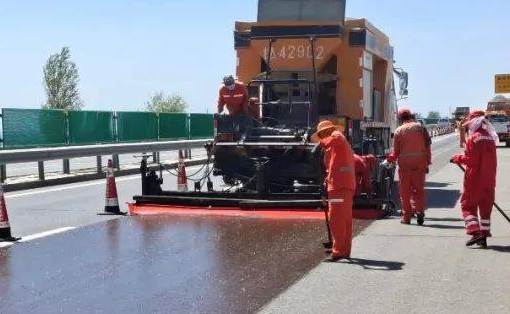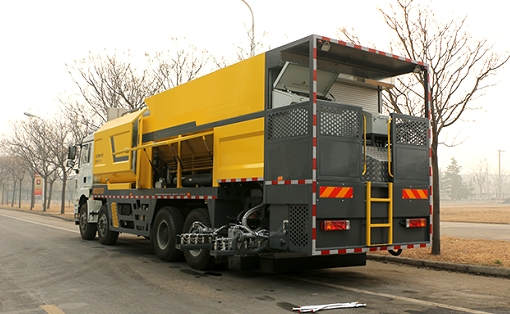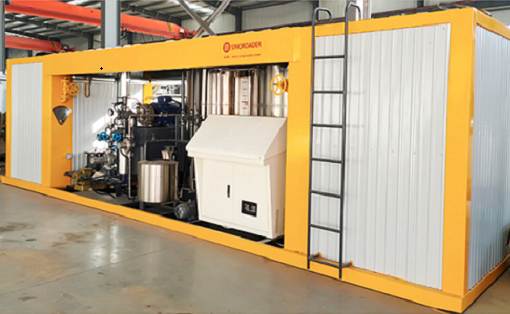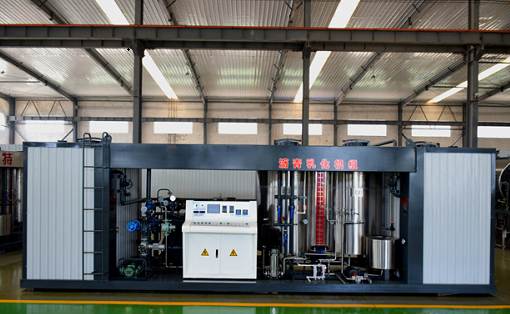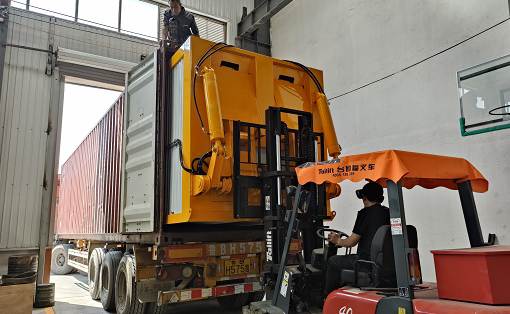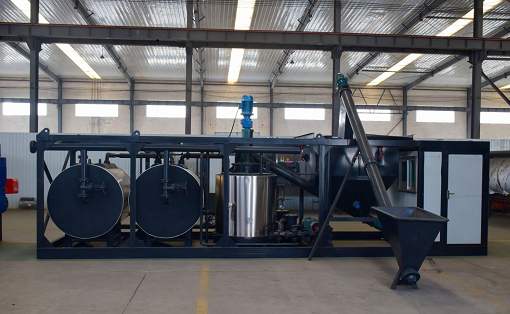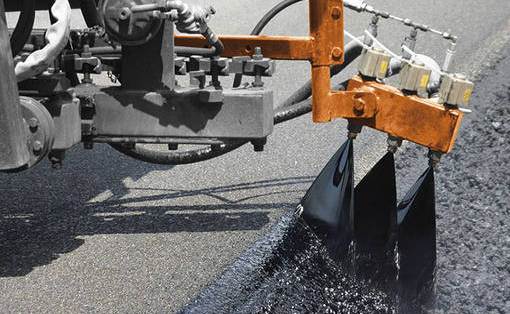How is the temperature and viscosity of emulsified bitumen equipment controlled during production?
Precautions during the production of emulsified bitumen equipment. How much do you know about this information? Let’s learn more about it:
When the emulsified bitumen equipment is in production, the viscosity of the bitumen decreases with the increase of temperature. For every 12℃ increase, its dynamic viscosity decreases by about one time. During production, the base bitumen should be heated to liquid state before emulsification. In addition, in order to adapt to the emulsification capacity of the colloid mill, the base bitumen dynamic viscosity is generally controlled to be about 200cst. The lower the temperature, the higher the viscosity, which increases the burden on the bitumen pump and the colloid mill, making it difficult to emulsify; but on the other hand, in order to prevent the demulsification caused by excessive vaporization and evaporation of water in the finished product during the production of emulsified bitumen, it is impossible to heat the base bitumen temperature too high. Generally, the finished product temperature at the outlet of the colloid mill should be controlled to be less than 85℃.
Precautions during the production of emulsified bitumen equipment. How much do you know about this information? Let’s learn more about it:
When the emulsified bitumen equipment is in production, the viscosity of the bitumen decreases with the increase of temperature. For every 12℃ increase, its dynamic viscosity decreases by about one time. During production, the base bitumen should be heated to liquid state before emulsification. In addition, in order to adapt to the emulsification capacity of the colloid mill, the base bitumen dynamic viscosity is generally controlled to be about 200cst. The lower the temperature, the higher the viscosity, which increases the burden on the bitumen pump and the colloid mill, making it difficult to emulsify; but on the other hand, in order to prevent the demulsification caused by excessive vaporization and evaporation of water in the finished product during the production of emulsified bitumen, it is impossible to heat the base bitumen temperature too high. Generally, the finished product temperature at the outlet of the colloid mill should be controlled to be less than 85℃.



